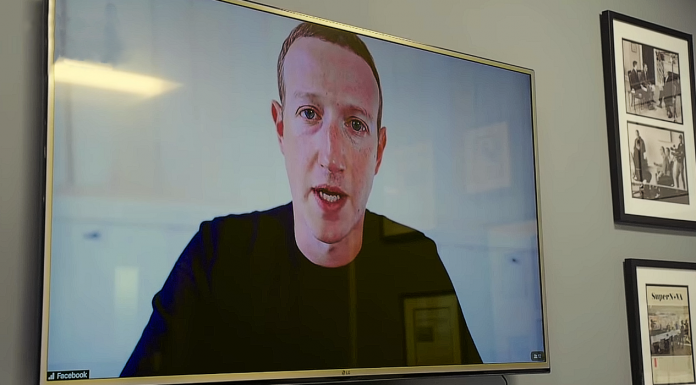(Headline USA) Facebook said it plans to hire 10,000 workers in the European Union over the next five years to work on a new computing platform that promises to connect people virtually but could raise concerns about privacy and the social platform gaining more control over people’s online lives.
The company said in a blog post Sunday that those high-skilled workers will help build “the metaverse,” a futuristic notion for connecting online that uses augmented and virtual reality.
Facebook executives have been touting the metaverse as the next big thing after the mobile internet, though their track record is spotty on predicting future trends.
Expectations that CEO Mark Zuckerberg made four years ago of taking virtual vacations with faraway loved ones via a headset or using a smartphone camera to improve an apartment virtually have not materialized so far.
The company also is contending with antitrust crackdowns; the testimony of ‘whistleblowing‘ former employees exposing its callous disregard for the health of teenage girls; and attacks from leftists who claim the company does not sufficiently censor ‘misinformation’ posted by Republicans.
Not surprisingly, it is eager to change the subject and to sway public opinion back into its court.
“As we begin the journey of bringing the metaverse to life, the need for highly specialized engineers is one of Facebook’s most pressing priorities,” according to the blog post from Nick Clegg, vice president of global affairs, and Javier Olivan, vice president of central products.
Facebook’s recruiters are targeting Germany, France, Italy, Spain, Poland, the Netherlands and Ireland for the hiring drive.
The metaverse essentially is a massive virtual world that can be accessed in real time by millions of people using avatars, who can use it to hold virtual meetings or buy virtual land and clothing or other digital assets, often paying with cryptocurrencies.
The social network isn’t the only one working on the metaverse, and Facebook acknowledged that no single company will own and operate it. Other players include Fortnite maker Epic Games, which has raised $1 billion from investors to help with its long-term plans for building the metaverse.
But there are concerns Facebook and a handful of other Silicon Valley giants would end up monopolizing the metaverse and use it to collect and profit from personal data, mirroring the situation now with the internet.
Facebook last month announced a $50 million investment to fund global research and partnerships with civil rights groups, nonprofits, governments and universities to develop products responsibly for the metaverse. But the company added that it would probably take 10 to 15 years to “fully realize” many of those products.
In a separate blog post Sunday, the company defended its approach to combating ‘hate speech,’ in response to a Wall Street Journal article that examined the company’s inability to detect and remove hateful and excessively violent posts.
The online publisher has routinely allowed groups—from the Taliban and ISIS to Black Lives Matter and Antifa—to organize and spread hate on its platforms. Nonetheless, the term “hate speech” is often used by social media companies as a dogwhistle code for censoring right wing perspectives that they already disagree with.
A British parliamentary committee that’s working on legislation to combat online harm is set to hear from two Facebook whistleblowers this week and next. Sophie Zhang, a data scientist who raised the alarm after finding evidence of online political manipulation in countries such as Honduras and Azerbaijan before she was fired, will appear before the committee Monday afternoon.
Next week, the committee will hear from Frances Haugen, who went public with internal Facebook research that she copied before leaving her job earlier this year. Haugen testified before a U.S. Senate panel this month about her accusations Facebook’s platforms harm children and incite political violence, and her British appearance will be the start of a tour to meet European lawmakers and regulators.
Adapted from reporting by the Associated Press

